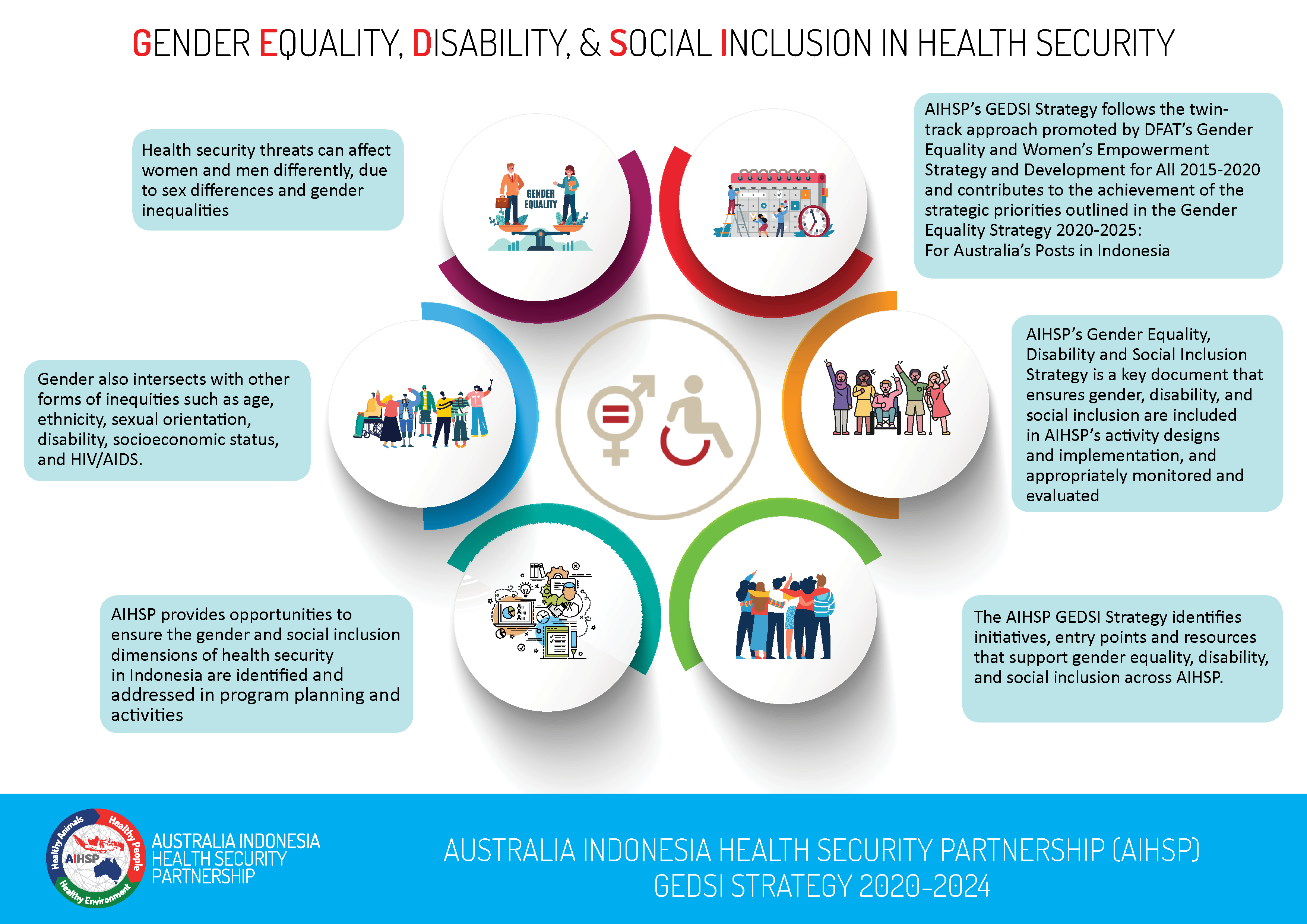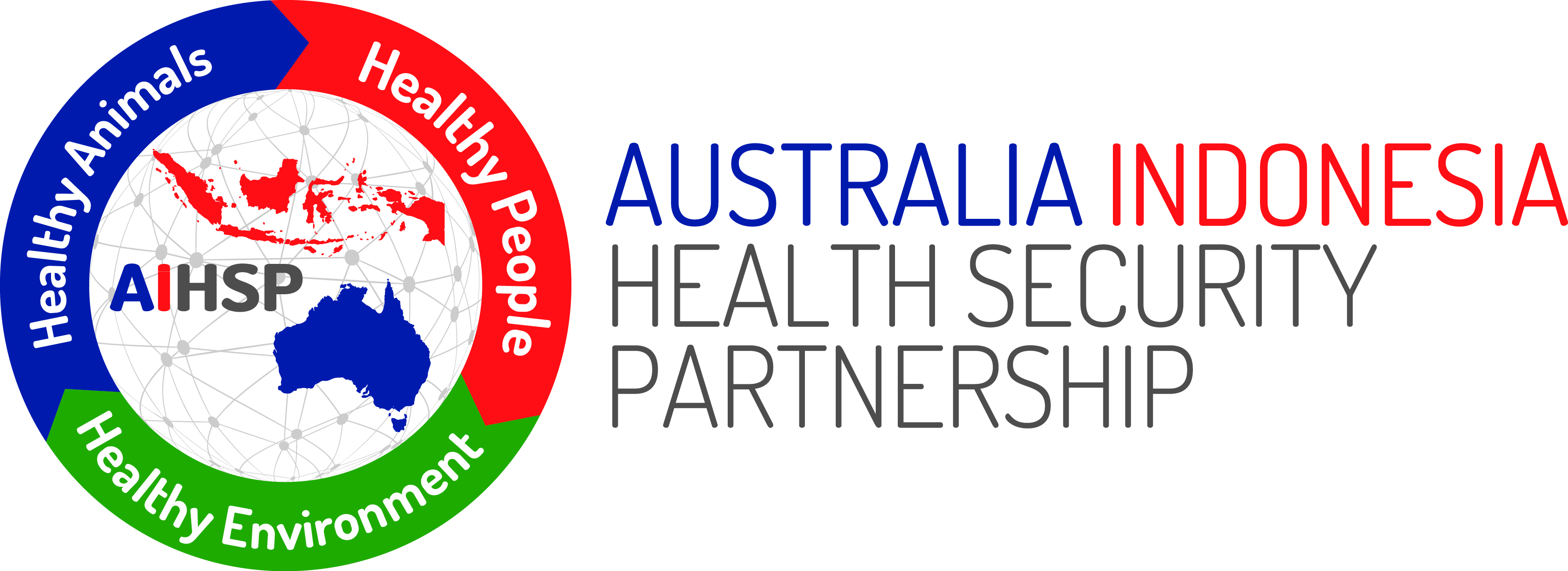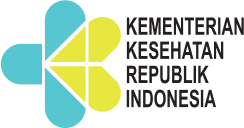Gender Equality, Disability and Social Inclusion in Health Security

The AIHSP works to ensure that all gender equality, disability and social inclusion (GEDSI) dimensions of health security in Indonesia are identified.
For instance, threats to human health can affect women and men differently. Gender inequalities and cultural behaviours can play a significant role in terms of vulnerability and exposure to infectious diseases, access to healthcare, treatment outcomes, engagement in economic activity, and upholding of sexual and reproductive rights.
Gender also intersects with other aspects of potential inequity, such as age, ethnicity, sexual orientation, disability, socioeconomic status and HIV/AIDS diagnosis. These factors can have considerable impact on how individuals and communities experience health threats and outbreaks of infectious diseases.
The AIHSP team strives to address GEDSI issues in all program planning and activities.
The program’s Gender Equality, Disability and Social Inclusion Strategy is a key document that ensures such issues are included in the program’s design and implementation, then appropriately monitored and evaluated.
The strategy identifies the initiatives, entry points and resources needed to support the inclusion of all women and men, people with disabilities and those from diverse backgrounds, in health security programming in Indonesia.
The broad objectives of the GEDSI strategy are to ensure that all AIHSP activities, where possible:
- incorporate measures specifically designed to address GEDSI issues in health security
- integrate GEDSI into all aspects of the AIHSP’s work
- increase participation by women, people with disabilities and other marginalised groups in health security activities
- expand the understanding and integration of GEDSI into the work of the AIHSP’s partner organisations.
The AIHSP’s GEDSI strategy follows the twin-track approach promoted by Australia’s Department of Foreign Affairs and Trade under two of its key initiatives: the Gender Equality and Women’s Empowerment Strategy; and the Development for All strategy for strengthening disability-inclusive development in Australia’s aid program. The AIHSP strategy also contributes to the achievement of priorities outlined in the Gender Equality Strategy 2020–2025: For Australia’s Posts in Indonesia.
Share this article on:





